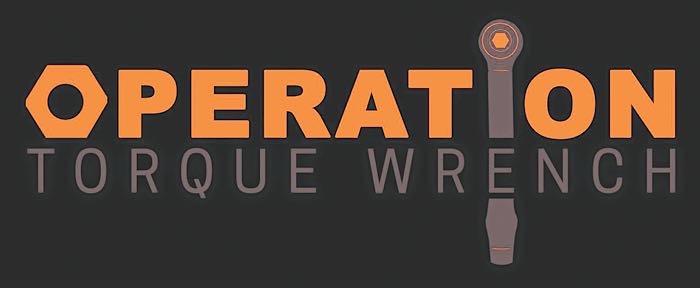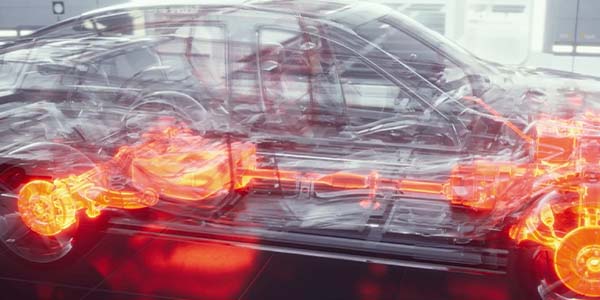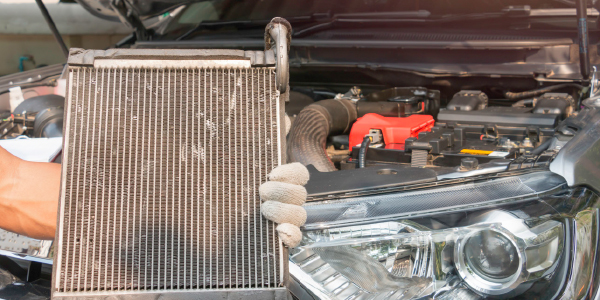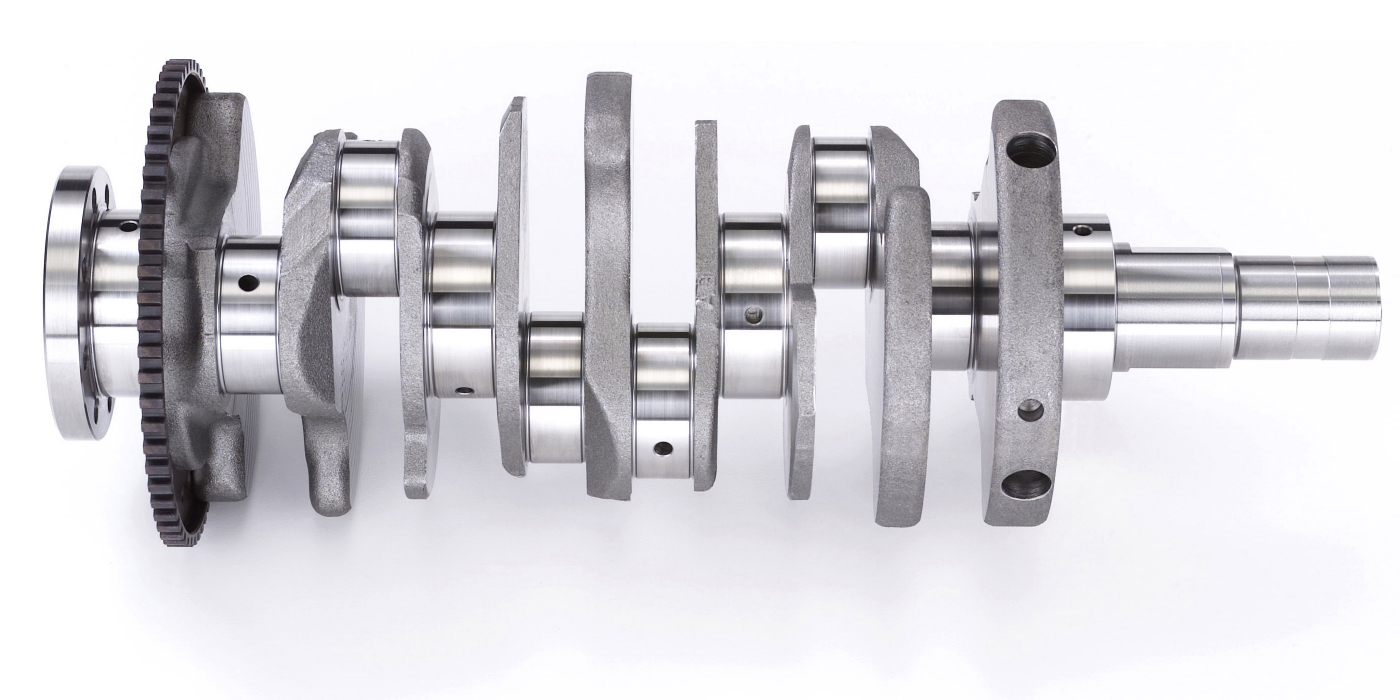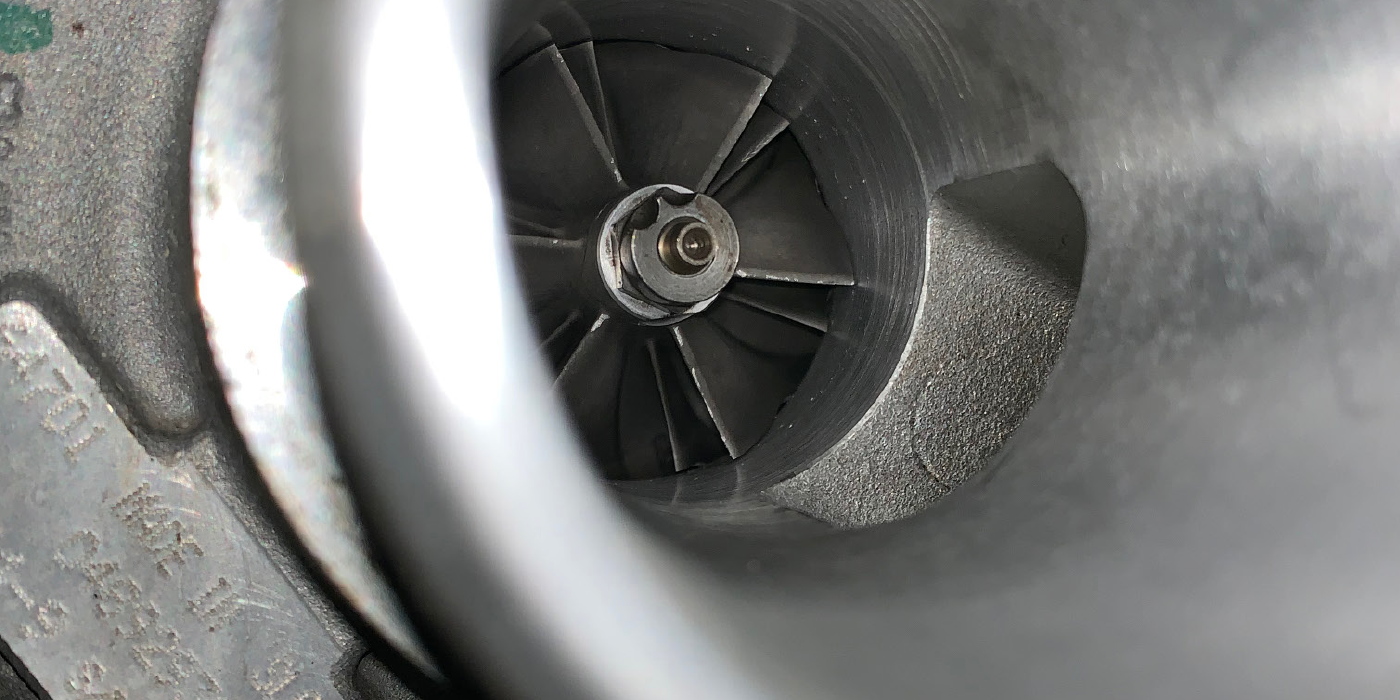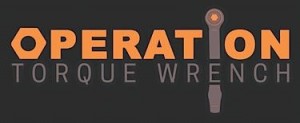 This month, the state of Michigan cracked down on nine unlicensed shops. The PR stunt was called “Operation Torque Wrench” by Secretary of State Ruth Johnson. This is kind of ironic, because most unlicensed shops and mechanics do not use torque wrenches.
This month, the state of Michigan cracked down on nine unlicensed shops. The PR stunt was called “Operation Torque Wrench” by Secretary of State Ruth Johnson. This is kind of ironic, because most unlicensed shops and mechanics do not use torque wrenches.
They even designed a logo for the operation (probably at the taxpayers’ expense). In a press release announcing the crackdown, Johnson said:
“Unlicensed auto repair shops and uncertified mechanics pose a serious threat to motorists. A bungled brake or alignment job could cause the driver to lose control, causing an injury — or worse. Customers expect that auto repairs will be done safely by people trained to do the job. We’re taking action to ensure those expectations are enforced to the full extent of the law.”
I agree that unlicensed shops can create safety problems for drivers and cause a drain on the economy in the form of lost work hours and healthcare costs. Also, they can hurt the image of the auto repair industry.
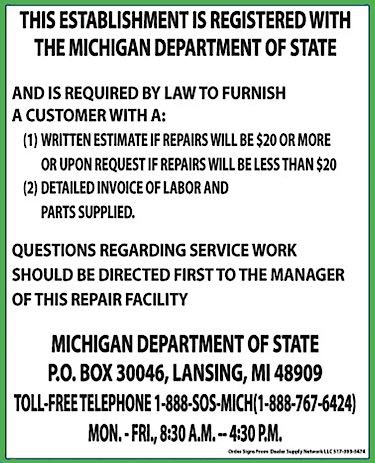 Cease-and-desist orders were issued and large poster sized “notice of penalty” signs were posted at the businesses caught by Operation Torque Wrench. The notices are supposed to prohibit these shops from performing any further automotive repairs until they comply with the state requirements. But, local news stations caught many of the shops still operating even after the notices were posted.
Cease-and-desist orders were issued and large poster sized “notice of penalty” signs were posted at the businesses caught by Operation Torque Wrench. The notices are supposed to prohibit these shops from performing any further automotive repairs until they comply with the state requirements. But, local news stations caught many of the shops still operating even after the notices were posted.
Pure Michigan
Michigan has more than 9,000 registered repair facilities (this number also includes new-car dealers). Johnson claims investigators monitor these shops, conducting compliance inspections to verify that the facilities and their mechanics are operating as authorized under the Motor Vehicle Service and Repair Act of 1974.
Under Michigan law, someone who knowingly provides automotive repair services without a registration or certificate is guilty of a misdemeanor punishable by up to 90 days in jail, a fine of up to $1,000, or both. There are exemptions for those who work on vehicles of family members and technicians who work for automakers.
In Michigan, the cost of the annual business license ranges from $25 to $500 depending on the revenue of the shop. The requirements of the license cover basic consumer protections like estimates, returning old parts and record-keeping. Also, shops must have a sign at the front counter that displays the hourly labor rate, customers’ rights and the 1-800 number for the secretary of state. There are no checks of the facility itself or of the equipment used.
For a “mechanic” certification (yes, Michigan still calls them “mechanics”), it is a $25 application fee and $6 for each certification test covering brakes, electrical, engine tune-up/performance (yes, they use the word “tune-up”) and other specialties. There are certifications for light-duty and heavy-duty vehicles.
Michigan says the mechanic testing program tests for minimum competency only. The mechanic tests are “quick pass,” which means as soon as the minimum passing score is attained the test ends. There is no “quick fail.” If you pass enough tests at $6 a pop, you can call yourself a “master” mechanic.
In the beginning, the test could be passed by a high school student who took a few auto shop classes. Over the years, The Motor Vehicle Service and Repair Act of 1974 has been amended to allow gas station attendants to change bulbs and wiper blades. Recently, it was amended to cover shops that install court-ordered breathalyzers in vehicles.
Worse Than Nothing At All?
Some say this system is better than nothing. According to some shops in Michigan (and my own experiences), the only ways to attract the secretary of state’s wrath are to have multiple customer complaints and allow your license to expire. Some shops have reported that they target licensed shops that report a lot of revenue with only one (or even zero) certified technicians. Most law-abiding shops have not seen an inspector in decades.
Like I said, I am all for the licensing of shops and technicians. What I am against is bureaucrats and policies that are out of date and put taxes on shops and technicians which have no direct benefits to the individual or industry. It is like paying property tax and still not having functional schools or roads.
These programs collect the taxes and fees, but don’t have a budget for enforcement and education. They have very limited impact on consumers because the complaint system is reactive, not proactive at weeding out bad shops.
Johnson wants more tools to better protect consumers from illegal repair shops, so she’s pushing Michigan House Bills 4343 and 4344. But, these bills do not fund a mechanism of actual intelligence that could logically protect consumers. The new bills just further criminalize illegal shops and increase the punishments for repeat offenders up to one year in prison or a fine of $5,000.
The nine shops cited in Operation Torque Wrench constitute just a small number of unlicensed shops and shadetree mechanics operating in Michigan. Johnson and her department would have to get out of their offices and start citing nine shops a week for the next two years to make a dent in the problem. Maybe first they need a new snappy name like “Operation Air Ratchet” or “Craigslist Crescent Wrench.” I will even design the logo free of charge.

